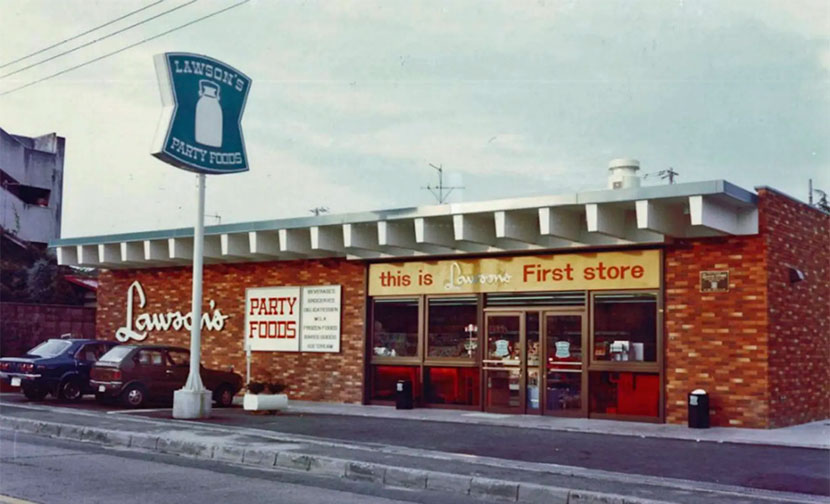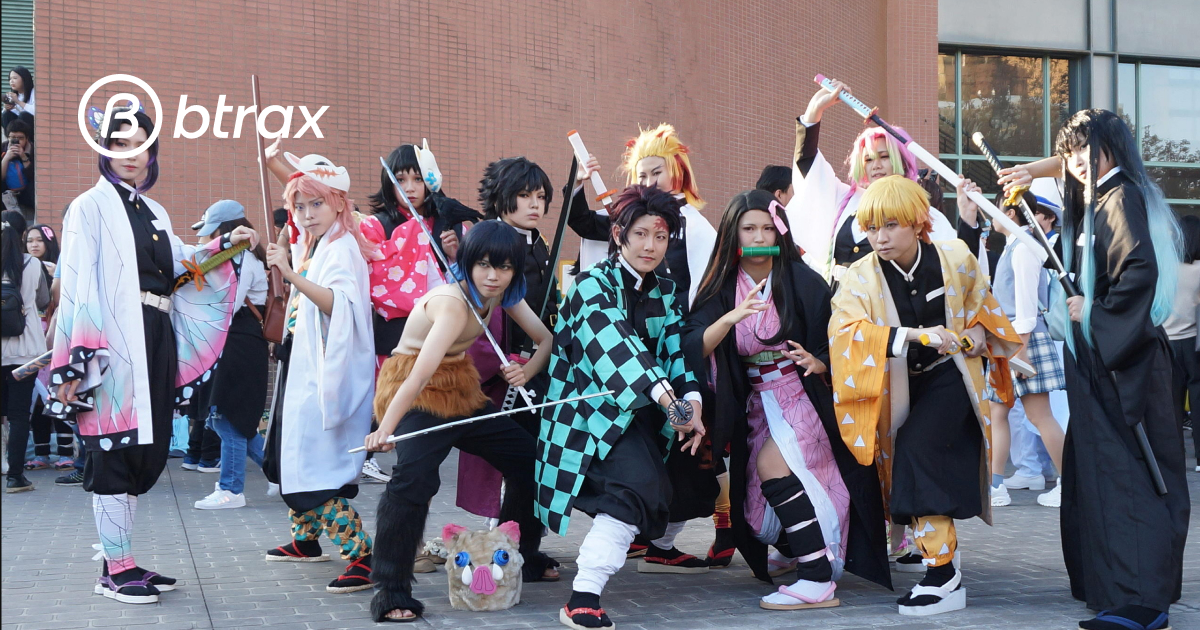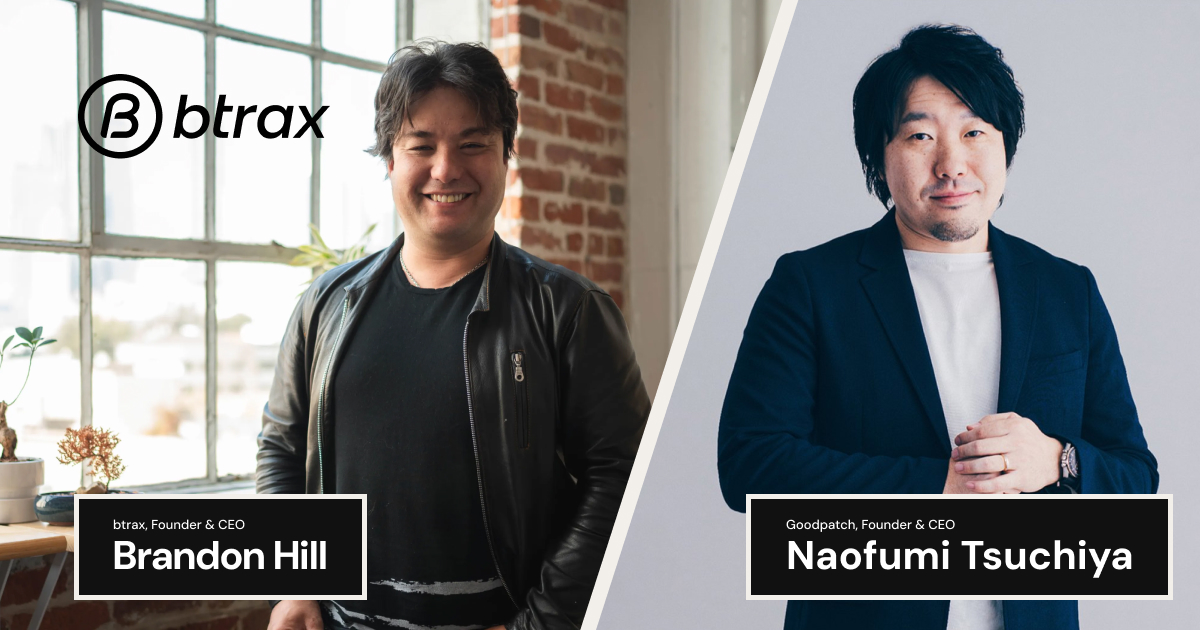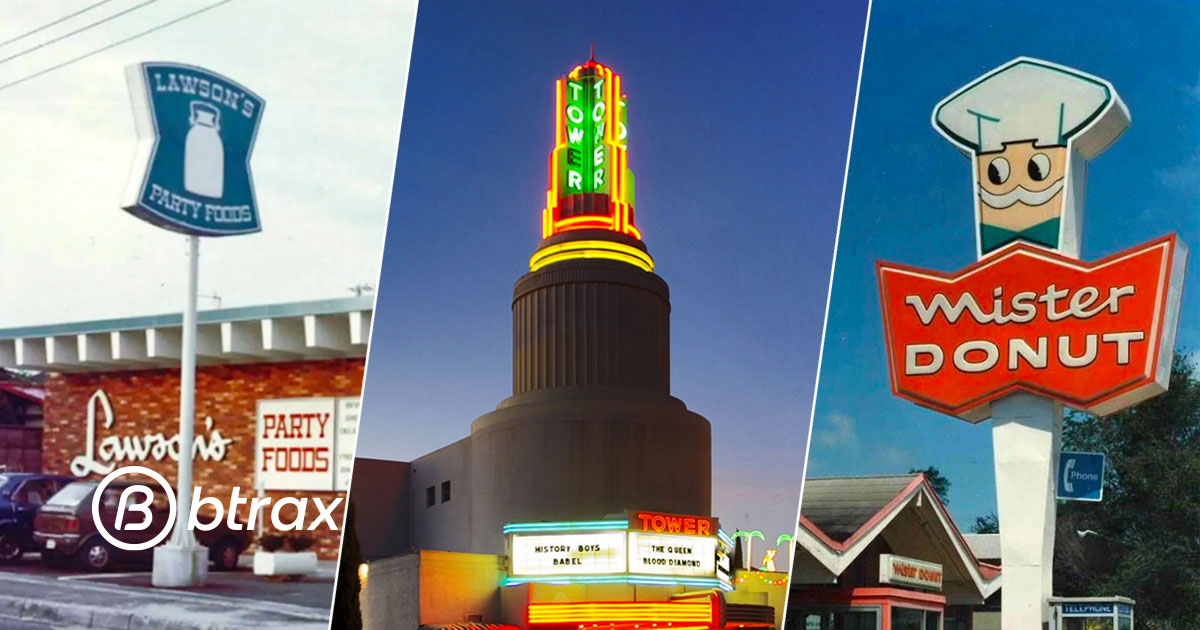
Btrax Design Company > Freshtrax > 3 vanished U.S....
3 vanished U.S. brands whose businesses live on in the Japanese market
Formerly based in San Francisco, the US interactive store and brand, b8ta, has disappeared from its home market. The company is effectively bankrupt, however, its Japanese subsidiary, b8ta Japan, has managed to thrive in the Japanese market.
According to a statement by Mr. Kitagawa, the president of b8ta Japan, “Thanks to your support, our business in Japan is doing very well. Perhaps it was a better fit with Japanese business practices, user experience, and consumer purchasing patterns than in its home country of the United States.”
Interestingly, this is not an isolated case!
Could the Japanese market offer a second chance for foreign brands?
As in the case of b8ta, there are several other Bon Jovi-like “Big in Japan” brands with some very interesting stories.
Lawson
Lawson is one of the top 3 convenience stores in Japan today, however, it originated in Ohio! In 1939 the first Lawson store opened under the “Lawson’s Milk Company” by dairy farmer J.J. Lawson for the simple purpose of selling milk at his dairy plant.
This was a new concept at the time as people were accustomed to milk being delivered to their homes rather than purchasing it from a store. The milk bottle in Lawson’s logo is a nod to the origins of the brand.
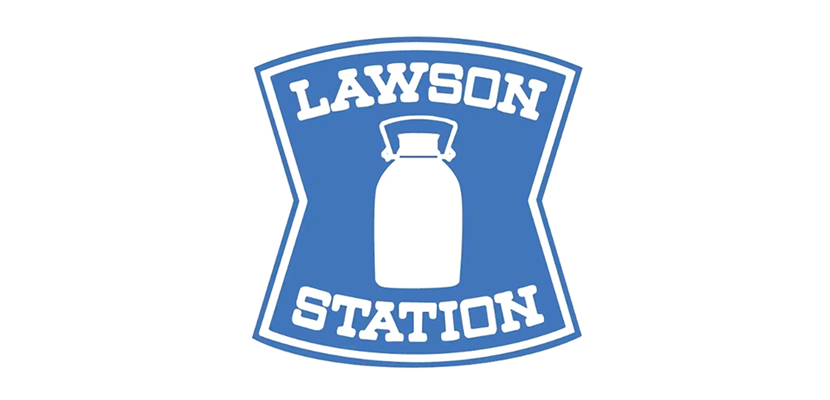
The Lawson logo, which originated from the Milk Store.
Since then, the company has steadily increased the number of stores and grown into a convenience store chain that sells food and daily necessities. The number of stores expanded to as many as 700 locations, including those outside of Ohio.
However, the Lawson brand disappeared from the U.S. in 1985 when the owner tragically passed away and the parent company sold itself to another company.
However, the Lawson name lives on in Japan! Since 1975, Daiei LAWSON, Inc. has been established as a wholly owned subsidiary of Daiei, Inc. in Japan, and has grown to become one of the most well-known convenience store chains in the country.
Incidentally, the total number of LAWSON stores that exist across Japan today is larger than the number of 7-Eleven stores in the United States and Canada combined.
Tower Records

Tower Records San Francisco (now defunct).
Here is another brand that has found success in Japan despite going bankrupt and disappearing from the U.S. over a decade ago! Against all odds, Tower Records, the once thriving vinyl chain, has managed to survive in the Japanese market. Even the founder of the company has a look of disbelief on his face when he sees that the business is still living on in Japan.
Tower Records was first opened in 1960 by Russell Solomon in his hometown of Sacramento, California.
After finding success, Tower Records opened stores in San Francisco in 1967, and Los Angeles in 1970. The subsidiary of the brand, Tower Records Japan, was formed in 1980 and opened its first Japanese store in Sapporo, Japan.
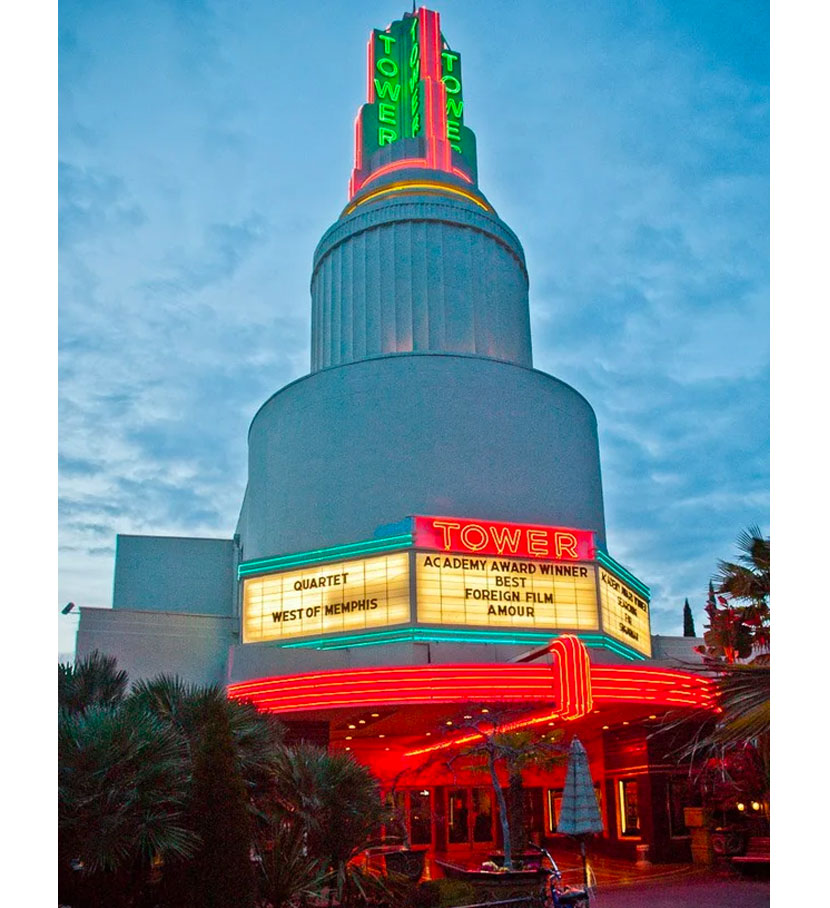
The first Tower Records store in Sacramento, California.
Originally started by a group of music lovers who got together to buy and sell their favorite records, the store was named Tower Records and opened in a movie theater building that was converted into a store. The popularity of the store was spread by word of mouth, especially locally, which allowed the store to expand throughout the U.S., riding the wave of the times.
The name recognition of the store spread so wide that one record store in Sapporo attempted to steal away business from the chain by naming their shop “Tower Record.” A name that was suspiciously close to the name of the actual brand, “Tower Records.”
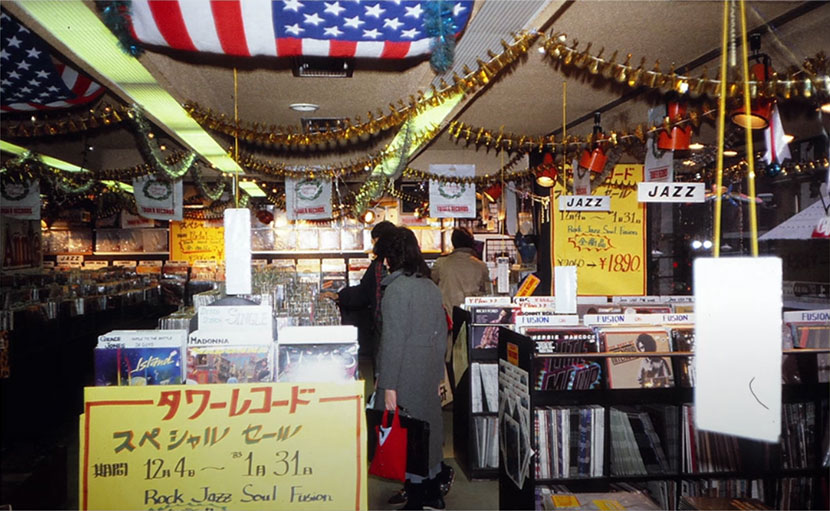
Fake Tower Records shop, “Tower Record,” in Sapporo.
The famous Tower Records corporate slogan, “No Music, No Life” was first developed and used by the Japanese branch, and later adopted in the US and abroad!
In the late 1990s, Tower Records flourished internationally! The chain expanded its stores worldwide, even spawning follow-on brands such as HMV and Virgin Megastore.
The booming business began to decline in the 2000s with the rapid spread of cheap CD sales at mass retailers, online sales, and download sharing. The company was, unfortunately, unable to keep up with the changing times. Tower Records went bankrupt and almost all of its stores had disappeared by 2006.
Surprisingly, the Tower Records brand continues to live on in Japan and is widely known, especially through its Shibuya store. This was showcased in 2015 by the documentary film, “All Things Must Pass,” directed by Colin Hanks.
Towards the end of the film when founder Russell Solomon visits Tower Records in Shibuya, he is greeted with applause from all of the employees. It’s moving to see how Solomon’s beloved company, though disappeared from the U.S. market, can continue to be appreciated in the Japanese market.
Watch the trailer for “All Things Must Pass.”
Mister Donut

Mister Donut store in the U.S. that existed in the past.
When we asked Japanese people living in the U.S., the home of doughnuts, what brands they would like to see in the U.S., a common answer is “Misudo” (“Mister Donut”).
Yes, the doughnuts at the Japanese Misudo are a little different from the average American doughnut. Misudo, or Mister Donut, actually originated in the United States!
Although it may seem like a Japanese brand, Mister Donut was started in Boston in 1956. The founder, Harry Winokur, started the company with his brother-in-law, William Rosenberg.
Some time later, Rosenberg wanted to sell the franchise, but Winokur was strongly opposed. So, Rosenberg went his own way and created a company that would become Dunkin’ Donuts.
The success of the first Mister Donut store, however, eventually led Winokur to introduce the franchise model as well. By 1970, Mister Donut had expanded, with 275 stores in North America! At its peak, in the 1980s, there were 550 stores in North America.
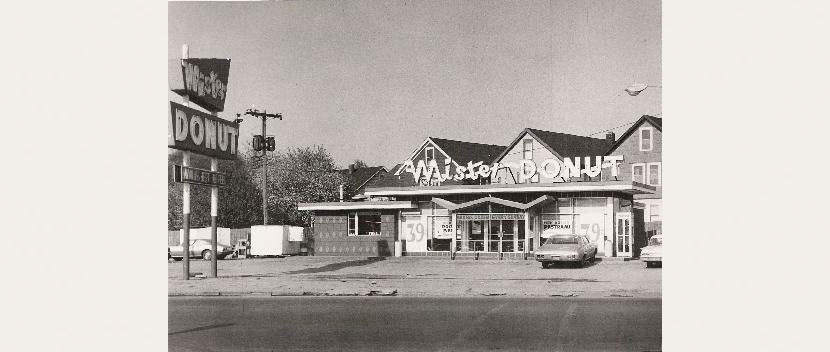
Mister Donut in the U.S. as it once existed.
Winokur and Rosenberg had been competing with each other since 1970, so, when Dunkin’ Donuts opened its first store in Japan, Mister Donut wasn’t far behind. With the first Japanese Mister Donut location in Minoh City, Osaka Prefecture, the competition was brought to the Japanese market.
Mister Donut arrived in Japan through a partnership between Winocar and Seiichi Suzuki, founder of Duskin Co.. Mr. Suzuki had traveled to the United States to study business and, after meeting Winocar, he decided to bring the doughnut shop to Japan.
Initially, like other companies targeting the Japanese market, Mister Donut was a direct copy of its U.S. operations. Soon, Duskin Co. began looking to develop and localize the business.
To test the market, a full-scale model of an American Mister Donut store was constructed in Duskin’s warehouse. Duskin salespeople were asked to sample the donuts and comment on the décor, and they had a lot to say.
They said the counter was too high, the chairs too wide, the coffee cups too heavy, and the donuts too big and strange to the Japanese taste palette. Feedback included that there was too much nutmeg, by Japanese standards.
So, with these comments in mind, everything was changed, including the menu! The atmosphere was reimagined with more of an upscale feel. In Japan, doughnuts have a strong association as being a snack for children. To combat this image, they raised the price and made the store look like a trendy Seattle coffee shop. It was a huge success!
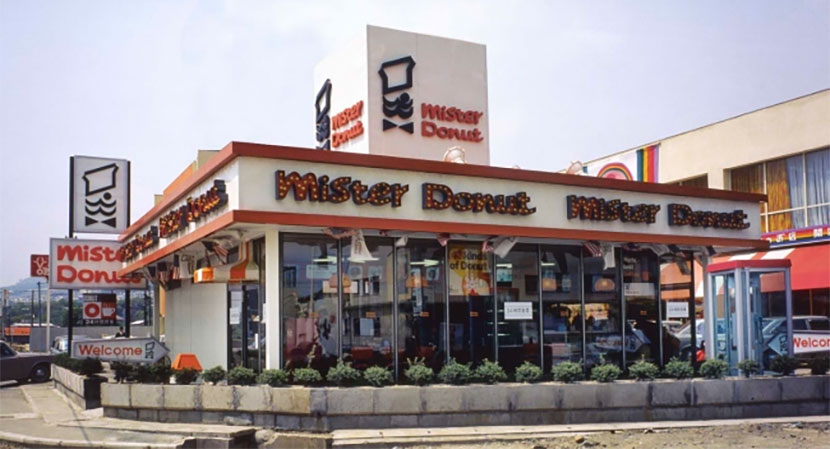
The first Mister Donut shop in Japan.
The company used popular comedians for advertisements, ran campaigns for children, and reduced prices after the bursting of the bubble economy.
Meanwhile, in its home country of the U.S., Starbucks and Dunkin’ Donuts acquired the Mister Donut brand in 1990 and converted them into their own stores, which forced Mister Donut out of the U.S. market. So while you may not see a Mister Donut in the U.S. today, they are common all across Japan!
The key is brand localization.
As these three examples show, there are many cases where brands that have disappeared or shrunk considerably in their original birthplace have blossomed in Japan. Of course, there are many companies that continue to thrive in both cultures while offering a totally different customer experience that is localized to its respective market.
Western brands in particular are easily accepted in Japan and, if they can be localized well, the Japanese market may become the land of opportunity for many foreign brands… and we can help!
Btrax has helped companies like Toys R Us, Seven Eleven, Evernote, and more thrive in Japan, even when business in their home countries has begun to slow down.
So, can you think of some other success stories that we haven’t mentioned yet?
Let us know!
Will your company be the next great success story?
Contact us to find out how we can help you and your company succeed.
Our new E-Book is ready to download!
We’re thrilled to announce the release of our newest e-book: “A Guide to the Promotional Seasons in Japan.”
Featuring insights and examples of successful marketing campaigns that leverage Japan’s distinct seasons to market their products to thrive in the Japanese market!

